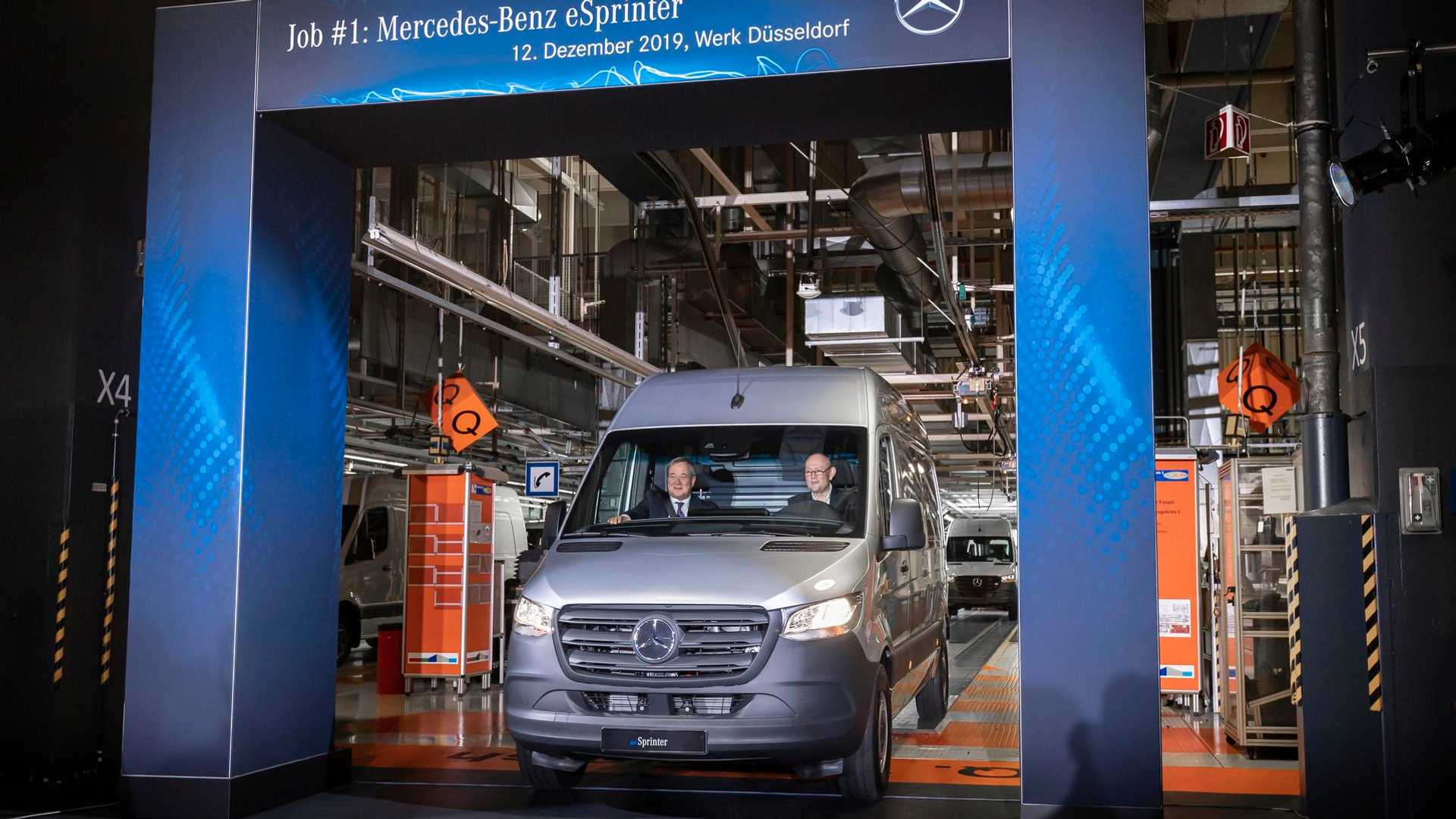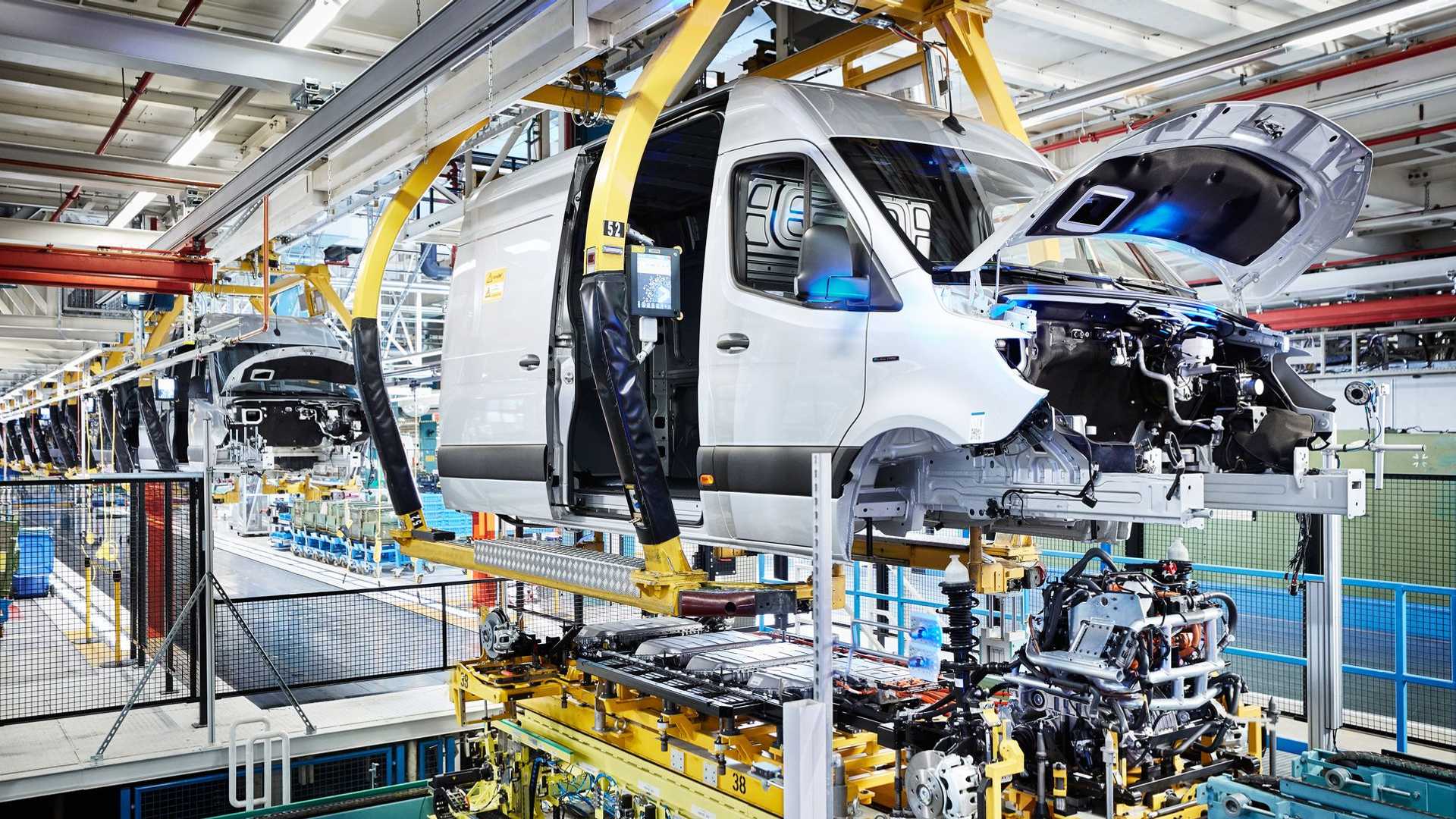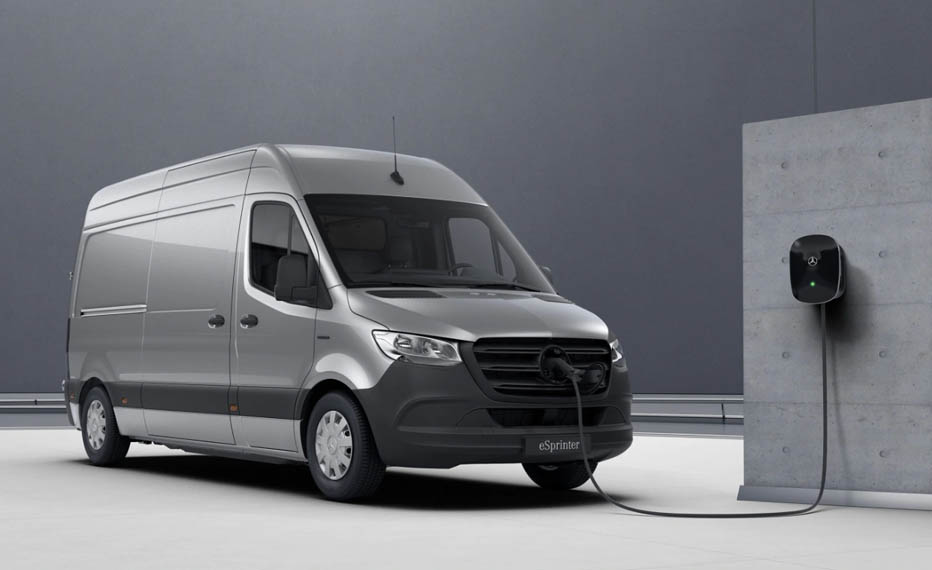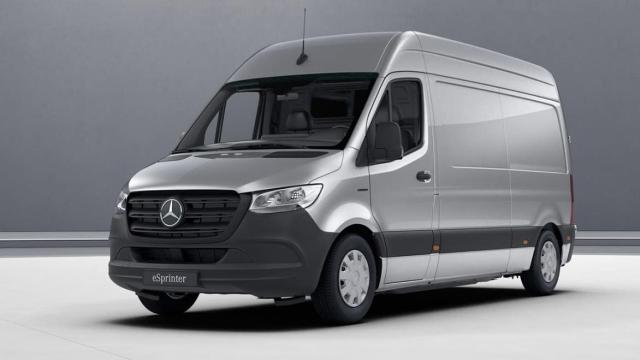This week, Mercedes-Benz opened its order books in the United Kingdom for its new eSprinter line of vans. It’s the same best-selling Sprinter van with enough batteries to haul you and your stuff a humble 154 km of range on a full charge. Here’s why Mercedes thinks that’s enough.
According to Mercedes-Benz market research of cargo van drivers, the average daily mileage of a van in Europe is just around 97 km. With that in mind, if you charge overnight, you’ll start the day with 160 per cent of your daily energy requirement. That’s still definitely a much tighter reserve margin than, say, a full tank of gas ahead of your average daily commute, but it’s certainly enough for a majority of Europe’s van drivers to survive comfortably.
And according to DrivingElectric, “it’s aimed primarily at businesses conducting multi-drop ‘last-mile’ deliveries in urban areas subject to (or soon to be subject to) emissions restrictions.” So suck on that haters.

The new UK eSprinter van gets an electric motor mounted on its front axle that produces up to 85 kilowatts and 73 Nm of torque. Under the floor of the rear cargo hold is four parallel battery packs offering enough energy storage to provide up to 154 km of range on a full charge.
The van also gets brake assist, attention alert, a heated driver’s seat, air conditioning, armrest, Bluetooth and USB, and two passenger seats thrown in for your money. The standard charge rate is 20 kW, but can be upgraded to 80 kW which cuts the charge time up to 80 per cent from two hours to just 30 minutes with a Type 2 charging cable.
The initial starting price from the factory is £51,950 ($94,940), but nobody is actually going to pay that amount thanks to some hefty government incentives, like the £8,000 ($14,600) OLEV plug-in grant which can be applied. Though over 90 grand for just 154 km still sounds hard to swallow.

With the knowledge that 154 km is more than enough range to satisfy the target demographic of these new electric European vans, Mercedes also promises the batteries retain at least 70 per cent of their energy capacity after a decade, and the deal includes an eight-year or 160,000 km warranty. It’s also available in a 114 km trim with just three battery packs (which, by the way, are interchangeable if they ever need be, you know, interchanged), that you would likely get if you were looking for maximum payload over power.
What do you think? I think it’s interesting that Mercedes-Benz has designed and built a vehicle so specifically targeted (or maybe limited) to a market, even if it is a very large market. It’s very rare that a company looks at the customer with any sort of technological or material discipline these days, as the American companies devolve into an electric horsepower war. Then again, batteries are expensive for car companies, too, so it makes sense to save where the driver should never notice.

